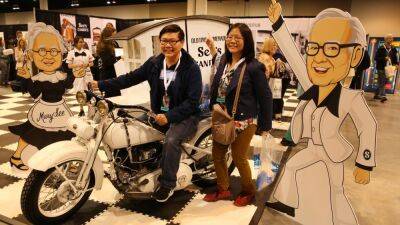Quick lit: vending machines dispense false eyelashes, milk – and now books
L ong gone are the days when vending machines would simply swallow your money. Nor are they limited to offering a savoury snack or sweet treat. Instead they have quietly transformed into hi-tech cashless devices selling everything you could possibly need on the move, from false eyelashes to milk, and now books.
The publisher Penguin Random House is showcasing a book vending machine at Exeter St Davids railway station in Devon. The titles available include Taste by Stanley Tucci, but what is sold will change regularly, partly based on key moments in the year such as Black History Month.
David Llewellyn,chief executive of the Automatic Vending Association, said there has been a rise in machines offering personal protective equipment for workers, as well as a growth in “micro-markets”.
“These are small retail units that sit within an office block offering fresh food, snacks and confectionery,” he says. “It’s like a small unattended retail corner, using things like smart fridges that can read what is taken out of them. You can buy a whole meal.”
Llewellyn thinks micro-markets have arisen because of different working patterns, with more people at home. “There are less people consistently on sites now, so not huge demand for canteens,” he says.
Book vending machines are not entirely new. The first Penguin book vending machine sprang up in Charing Cross Road in 1937, and at the time the books cost sixpence each. In 2019, short-story vending machines arrived in Canary Wharf in London. They dispensed one-, three- and five-minute stories free to passersby.
Llewellyn says the vending market had a £2.2bn turnover before the pandemic, which dropped by around 40% when lockdowns forced people out of the offices, transport hubs and leisure
Read more on theguardian.com




















